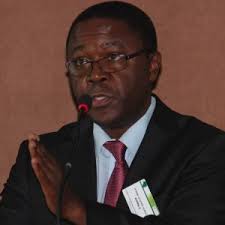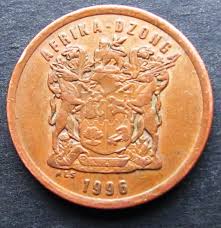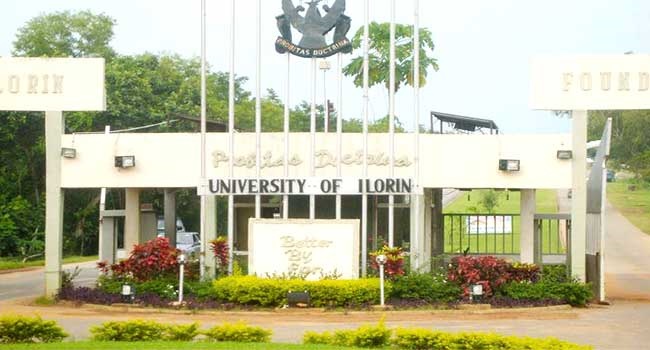Nigeria currently has no Spectrum trading regime- Prof Nwana

Prof H. Sama Nwana is the CEO Altlantic Telecoms and Media based in London. He spoke to Tony Nwakaegho in this interview in Lagos during the Annual Consultative Forum on Engineering and Emerging Technologies organized by the Nigeria Communications Commission on the nitty-gritty of Spectrum Trading. Excerpts:
Could you give an insight into what Spectrum is all about for the understanding of the ordinary people on the street?
Spectrum is the oxygen of the whole mobile industry. Without spectrum, the whole mobile industry doesn’t happen. It is just like I need a road to the Third Mainland Bridge to take me from Ikeja to the Island; it is the same as spectrum. It is that important highway that provides a whole range of services that even Nigerian consumers are taking for granted. The WIFI in my phone is a Spectrum. The plane flying in the air requires spectrum to be able to communicate to the ground services to ensure that there are no collisions here to the Lagos Airport. So spectrum underpins millions and millions of services in the economy.
Briefly give a thrust of your paper presentation during this Spectrum trading forum?
My paper was really to support, as a former Spectrum regulator in the United Kingdom, to support the effort of Nigeria to more spectrum market. I know it may sound a little bit complicated, but spectrum is just like any other commodity. It is a bit complicated in certain circumstances because of issues like interference, but spectrum can be bought and sold just as I can buy and sell cars. So, the Nigeria Communications Commission (NCC) in Nigeria has been continually introducing market-based approach, to which spectrum is allocated. Before, it used to be the regulator knows best and they can tell you that this spectrum is good for you and you must use it in this particular specific way. The reality is the market always knows better than any spectrum regulator, so we need to now encourage the user spectrum market and that is why in Nigeria we have been using auctions versus spectrum market mechanism. That is why Nigeria has also been using liberalization. Liberalization means that you make it easy that the spectrum that I have you don’t tell me what I can use that spectrum for. If you buy your house today in Ikeja, will I come and tell you what you do to that house? No. But that used to be the case with spectrum. I will sell you spectrum and I will still tell you what to do with it. Now, liberalization says basically that you can use it as you want subject to ‘don’t disturb your neighbours,’ and that is quite important. The next step is how you start trading the spectrum. If I don’t need my car any more, what do I do? I sell it off. The same thing, if I don’t need my spectrum anymore and I want to sell my spectrum to somebody who needs it better than I do and Nigeria does not currently have that spectrum trading regime. And some spectrum trade has already been happening in the market place. For example, MTN bought some spectrum from Visafone, but there was no spectrum trading framework in Nigeria. And I think it’s important that we put one in Nigeria and ensure that this trades can happen in an orderly way.
What do you think will be the implication of the old practice while we are introducing the liberalized market?
The implication is very important and threefold. First, if spectrum is liberalized, and if spectrum is tradable, then that spectrum is going to find its highest value use and it is going to go into the hands of its highest value user. It is really important and if any asset in society in its highest value use and in the hands of the highest value user then it creates more wealth for society. So let me give you an example, will ‘A’ be able to use if it is given the MTN spectrum to use it as well as MTN can use it? No. So, that spectrum will not be in its highest value user for Nigeria. Even if ‘A’ is given that MTN spectrum and ‘A’ starts using it for some other things not for communications, will that spectrum be in its highest value use? No. So, liberalization and trading allows spectrum to also move to its highest value use and to its highest value user, because that will always benefit Nigerian consumers and citizens.
Can you take away the chances of this spectrum being misused or being hoarded?
The way you address that is by three ways. It is either you enforce very strongly. If you buy spectrum and you don’t use it, some regulator will introduce what they call ‘use it or lose it obligations.’ You either use it or lose it or you trade it away. The second thing is to use pricing, even if you have that piece of spectrum you may be paying a price for that piece of spectrum every year and if that price is reasonably high and it is equivalent to the value of that spectrum, you are going to stop keeping it, saying this is too high for me. That is one of the reasons why spectrum trading requires some pricing to that spectrum. Thirdly, if that spectrum actually moved to the right price, would any company buy spectrum for millions of dollars and don’t use it? It is highly unlikely. If the spectrum gets its right price, only people who will buy with intent to use it will do so. And that is one of the key things we are trying to do with the spectrum trading regulations as well.
Is there any way the small companies can benefit in this Spectrum trading?
You heard Engr. Ndukwe talk about spectrum trading and spectrum sharing. The issue is, if you sit here in Lagos you don’t understand the real issue of somebody in Yola. The challenges in Yola are completely different from that in Lagos because the affordability and accessibility in Lagos is much more different than the affordability and accessibility in Yola. These companies have national spectrum all across. But if they are not using most of their spectrum in most of the places, 3G, 4G spectrum in Yola, wouldn’t it be nice to potentially trade that right to a small ISP in Yola for the ISP to be able to provide services in Yola to people who they know better, because the Lagos-based company does not necessarily understand the esoterics of the market in Yola. So a combination of spectrum trading and spectrum sharing can really enable small businesses to come up. Look at the value that a small company like SWIFT is adding into Nigeria. SWIFT is one of the best companies in the telecommunication sector in my view in Nigeria. It very well run, providing broadband internet services that is competent and it doesn’t try to provide services in all markets, but where it is providing services in Lagos State it provides it well. Wouldn’t it be nice to also have others in Kano, Adamawa providing services in those markets very well? Spectrum trading and spectrum sharing will be potentially helped to enable that including WIFI because we now run a lot of telecommunications services on WIFI.
Are the small companies being over-regulated in the industry as it is being touted?
Look at the role of WIFI. WIFI is now the most important wire technology in the market place today. A lot of times we don’t think about it. A lot of times we think of 4G, 5G. Did anybody regulate WIFI? Did NCC regulate WIFI? No. It happened naturally. So, sometimes, if the yoke of regulation stifles businesses so over regulation basically stifles this businesses and particularly small businesses. Any economy like Nigeria is to run on small businesses so the big telecommunication company, like MTN and Etisalat still employ less than 10 percent of Nigerians. Most Nigerians who are in employment are employed by Small and Medium Enterprises. And the point is you want to give them a break for them to be able to ensure that they create jobs, and you don’t bring big companies regulations on them for them not to be able to succeed in the market.








